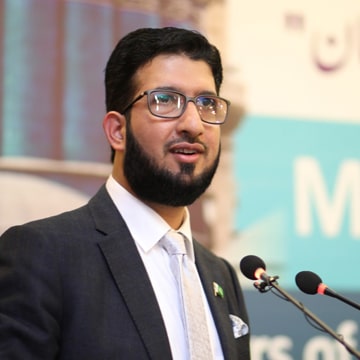 |
|
Opening Remarks
Sahibzada Sultan Ahmed Ali
Chairman MUSLIM Institute
|
| |
| Founder of Pakistan Quaid-e-Azam Muhammad Ali Jinnah visualized that Pakistan would work for peace, extending material and moral support to the world’s oppressed and suppressed people. Afghanistan in our neighbourhood has long been struggling for peace and stability. Undoubtedly, peace and stability are the fundamental essentials for socio-economic development in any society. Pakistan has a great interest in peace in Afghanistan and its Foreign Office, security Institutions and all other stakeholders are playing their role for peace in Afghanistan. In this respect, all possible sources have been utilized for the success of the Afghan peace deal. After spending almost 18 years in war, bearing a cost of $ 2 trillion, and an immeasurable loss of lives, the US has finally realised that durable peace cannot be achieved through military means. |
|
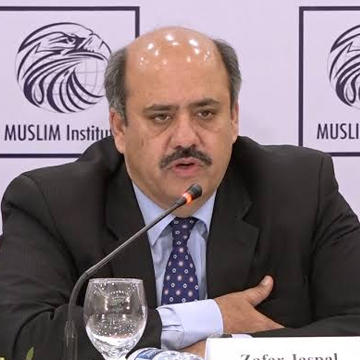 |
|
Guest Remarks
Dr. Zafar Nawaz Jaspal
Professor School of Politics and International Relations, Quaid-i-Azam University
|
| |
| Afghan peace process has reached a critical juncture. Everyone has eyes on Intra-Afghan talks which are expected in the near future. Afghan dialogue has reached the threshold today whose success as well failure will render a deep influence over the peace of the region. At the same time, one cannot underestimate the possibility of drifting this threshold into further chaos and anarchy. Afghan public, veto powers as well as the six neighbours of Afghanistan are willing to resolve the issue. Then where does the problem lie? Ashraf Ghani wishes to complete political tenure irrespective of circumstances, an uncomfortable India and the release of prisoners are some possible hindrances. However, the contest will be between the Presidential system vs Amir-ul-Momineen system. Strategically and politically stable Afghanistan is not only in the favor of a stable Pakistan but also that of a stable region. |
|
|
| |
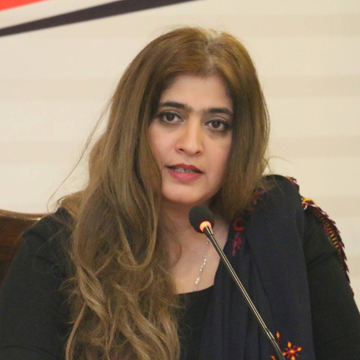 |
|
Guest Remarks
Dr. Maria Sultan
Chairperson, South Asian Strategic Stability Institute (SASSI)
|
| |
| While we are dealing with the larger question that how Afghanistan peace process is going to move forward. There remain four fundamental questions and they are linked to the Afghan security. First question, what would be the security of Afghanistan after the withdrawal of USA. Second, what would be the political power sharing in Kabul? Third, what would be the economic sustainability of the state? Fourth, how could be restructuring of Afghan national security forces happen? Consequently, the answers to these questions are: for political stability, permanent structure of Afghanistan's democracy should be constructed. Secondly, strong state structure is required for socio-economic development. Thirdly, writ of Afghan government is pertinent to control security of entire Afghanistan. Besides, another question is how Afghan peace process helps Pakistan? The answer to it, the peace will eliminate terrorists from Afghanistan. e.g. TTP, ISIS. It will ensure safe return of Afghan refugees. Last, it will bring political, military, and economic stability in Afghanistan which is in favour of Pakistan. Therefore, it is now up to the major key players in Afghanistan whether they want to support politically stable Afghanistan or would like to negotiate with a narco-state. |
|
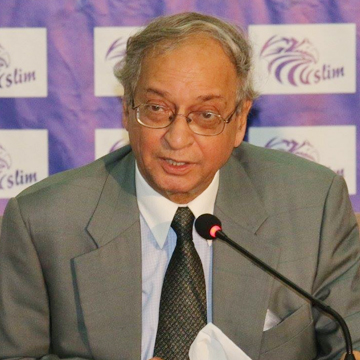 |
|
Guest Remarks
Amb. Ali Sarwar Naqvi
Executive Director, Centre for International Strategic Studies (CISS)
|
| |
| All the stakeholders are trying to resolve Afghan conflict by looking into their own interest. However, it has become too difficult because of the intervention of big powers. Afghanistan, often called as the heart of Asia links South Asia to Central Asia. Therefore, Afghanistan is a country which, because of its location, has been the subject among big powers. Considering February agreement between US and the Taliban which is the second phase of intra-Afghan dialogue, this is the difficult phase as Afghans are not known for working together and agreeing on things imposed on them as the process discusses hurdles about the power dispensation in Afghanistan. It is very important to make constitution for Afghanistan. Peace in the region is extremely important for various power projects, for road infrastructure, rail links and movements of goods transport system. However, all this will happen if there is peace in Afghanistan. |
|
|
| |
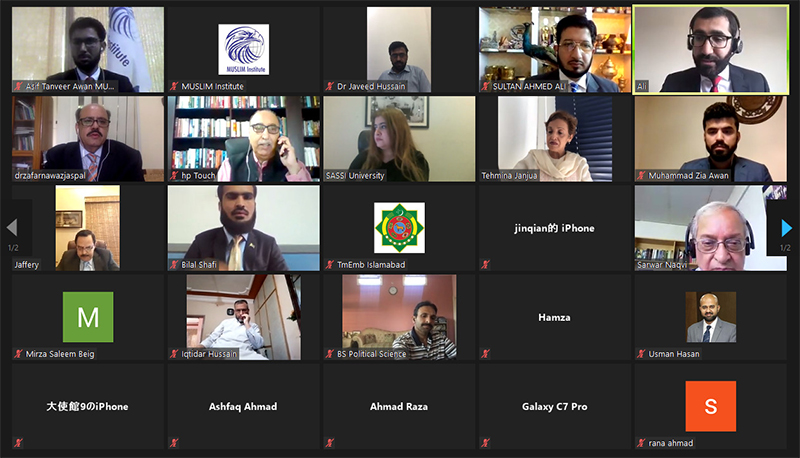 |
| |
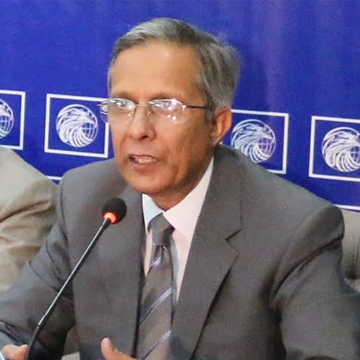 |
|
Guest Remarks
Dr. Tughral Yamin
Dean, Centre for International Peace & Stability (CIPS) NUST
|
| |
| The long-term Pak-Afghan policy from the Pakistani perspective is that it must remain fully involved in the reconstruction and rehabilitation of Afghanistan. Infrastructure and systems like judicial system, security system, and education system has to be rebuilt in Afghanistan. Refugee problem is one of the major bone of contention between Pakistan and Afghanistan. It’s a very difficult process if an Afghan has integrated himself into Pakistani society, he will not go back. If he is a 3rd generation, 4th generation Afghan, Pakistan would be home for him. However, Pakistani policymakers should deal with it very wisely. Pakistan should ensure an end to cross border terrorism and should not let any terrorist enter our soil from any side. |
|
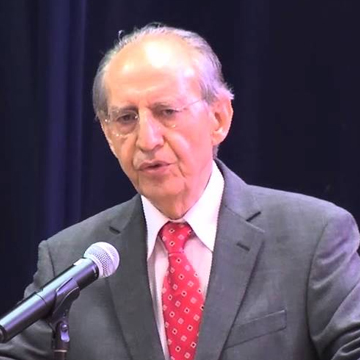 |
|
Guest Remarks
Prof. Dr. Mohammad Hashim Kamali
Founding CEO of the International Institute of Advanced Islamic Studies, Malaysia
|
| |
| Peace in Afghanistan is important for Pakistan and the region at large. Doha agreement is an opportunity for peace building in Afghanistan. However, internal differences between the Kabul regime and the Taliban are causing delay in the peace negotiations. Pakistan and Afghanistan are brother Islamic countries. The Holy Quran gives the lesson of peace, as there is no fraternity without peace. Additionally, peace should be a priority for all in Afghanistan. No one will invest in Afghanistan without peace and security. At last, all leaders as well as the public want peace in Afghanistan. I hope that it will become a reality. |
|
|
| |
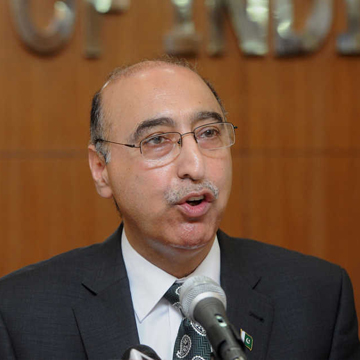 |
|
Guest Remarks
Amb. Abdul Basit
President Pakistan Institute for Conflict and Security Studies (PICSS)
|
| |
| In Afghanistan, at systemic and sub systemic levels, one finds issues difficult to reconcile with. Domestically, the Taliban still call themselves Islamic Emirate of Afghanistan and their strategy is to wait and see how US forces leave Afghanistan as stipulated in February 29 agreement. Similarly, political power game by President Ashraf Ghani aimed to prolong his rule is further weakening the peace process. Taliban are not likely to accept the existing constitution. They will like to bring many changes which might not be accepted by the other side. Spoilers, especially India will never favour a stable Afghanistan as it wants to continue diverting international attention from the issue of Kashmir. Although Pakistan has influence on Taliban but we cannot dictate them. Pakistan has limited options, peace in Afghanistan is essential for us but we cannot take entire responsibility of pushing Taliban towards peace. |
|
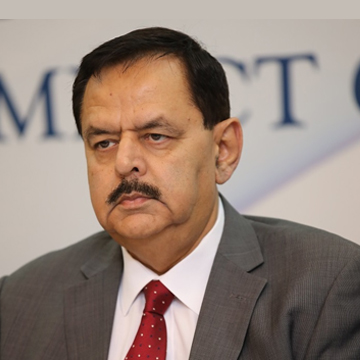 |
|
Guest Remarks
Maj. Gen. Khalid Amir Jaffery (Retd)
President, Center for Global and Strategic Studies (CGSS)
|
| |
| Recent visit of Taliban delegation to Islamabad shows that Pakistan has role in bringing both the parties closer with the help of negotiations. After Doha Peace agreement, Loya Jirga boosted the deal and settled various issues between Kabul government and Taliban. Abdullah Abdullah, Ustad Atta, and Dostum played an important role in the success of the Jirga. On the other hand, USA reduced its military troops from 13000 to 8600. It may further reduce to 4000. Additionally, here the question is, who will fill the vacuum after the withdrawal of US from Afghanistan? So, in economic perspective, China is the option. Importantly, Pakistan should be aware of India because peace in Afghanistan is a nightmare for India. The Indian spoilers like Amrallah Saleh is threat for Pakistan and responsible for Durand Line clashes. |
|
|
| |
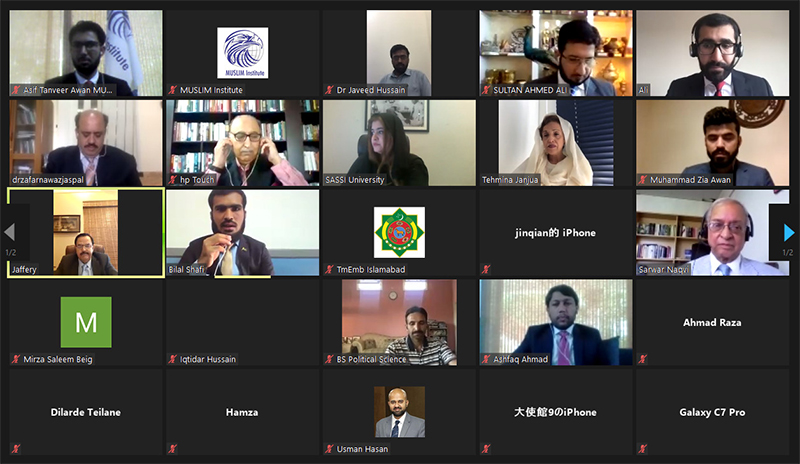 |
| |
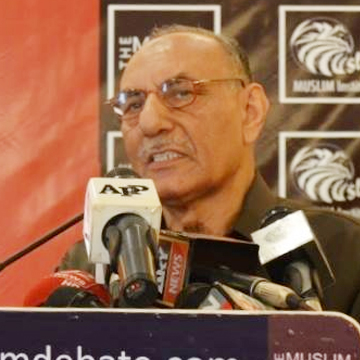 |
|
Guest Remarks
Lt. Gen. (Retd) Amjab Shuaib
Defence Analyst
|
| |
| Two main difficulties faced by Afghanistan today are due to the role of spoilers and the lack of consensus between Afghan society and political hierarchy. Personal whims of political leaders are causing serious harm to the national interest of the country. At the same time, India has been training bureaucrats, military leadership and the police of Afghanistan. However, influence of Indian policymakers in the Afghan policymaking helps in creating the mindset in the Afghan decision makers that every difficulty which Afghanistan is facing today is linked to the attitude and foreign policy of Pakistan. Lack of seriousness on part of America and its wish to give India a leading role in South Asia have further exposed that they aren’t sincere with Afghan peace process as India is detrimental to the stability in Afghanistan. |
|
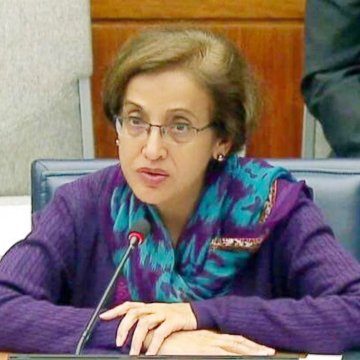 |
|
Guest Remarks
Ms. Tehmina Janjua
Former Foreign Secretary of Pakistan
|
| |
| We need to limit the space for non-state actors in Afghanistan, such as ISIS and Tehreek-E-Taliban Pakistan which are security threat for Pakistan. Furthermore, cooperation is required in areas of controlling narcotics, polio, and pandemics like COVID-19. After peace, return of Afghan refugees should be done in an honorable manner. Agreement of 2018, Afghanistan Pakistan Action Plan for Peace and Solidarity (APAPPS) can help both the countries to hold talks on various issues. Questions arise that current peace plan meets the desires that we are expecting from it? Thus, optimistic views of the peace talk are that a common Afghan thinks that peace talks will put end to decades’ old war. Secondly, USA is changing the policy toward Afghanistan because Afghan peace is going to play role in coming US elections. |
|
|
| |
| Interactive Session |
| |
After the remarks by guest speakers, interactive session was held. Speakers answered comprehensively to the questions raised by the audience. A brief summary of discussion is as follows:
Involving Russians and Chinese over what is acceptable to the US, is the major question. Chinese and Russians have the capacity to intervene and both have the capacity to debate, but the Americans would not like to bring them on front. China is the only country which can probably develop Afghanistan's infrastructure that should definitely be developed but the US does not want so. Bringing China does not suit America in her current relationship with China. American policy will continue towards Pakistan because, in the future, American policy will be governed by Asia-Pacific interests. At the same time, whether it is Trump or Biden, there would be some kind of shift in using words while treating or dealing with Pakistan and we may not observe the language being used couple of years ago. India is a strategic partner of the USA which wants to play the same role that Pakistan played in 1980s against Soviet Union. So, India will try to do the same things or play similar kind of role against China and of course against Pakistan. |
|
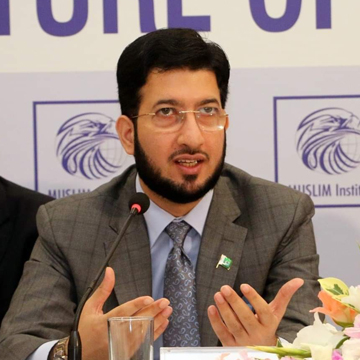 |
|
Concluding Remarks
Sahibzada Sultan Ahmed Ali
Chairman MUSLIM Institute
|
| |
| The preceding insightful and thought-provoking discussion, I believe, is a testament to the fact that this subject is indeed timely and deserves unconstrained attention. Peace in Afghanistan is crucial for not just Afghanistan itself or Pakistan but the whole region. Before concluding, I reiterate that peace in Afghanistan should be an absolute priority for the international community. Peace in Afghanistan has been elusive for many decades. However, Afghan Peace process is at a critical juncture that can go in any direction. Similarly, appropriate and immediate action should be taken against those who are constantly trying to derail the prospects of peace in Afghanistan. Only a prosperous and peaceful Afghanistan would help translate South Asia into a prosperous region. |
|
|
| |
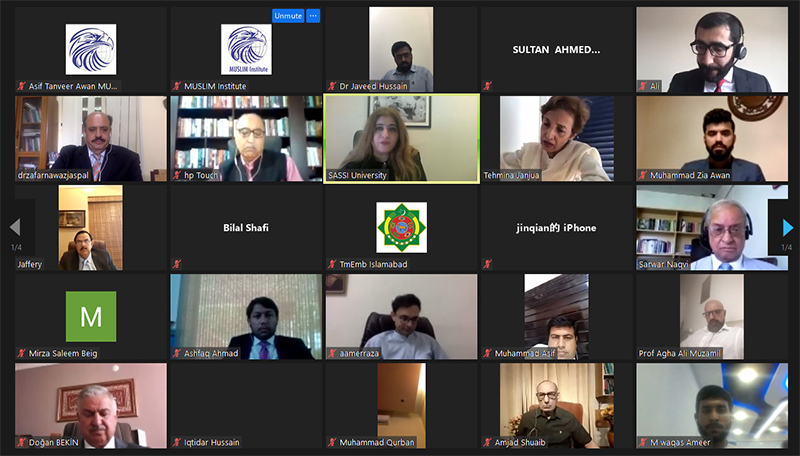 |
|
|
|
|














